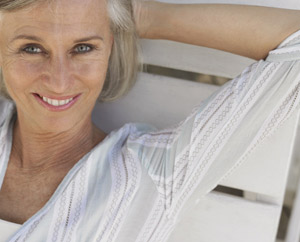Phosphatidylserine 20% Liquid (MCT) Non-Gmo
After Menopause, Cut Carbs to Lower Breast Cancer Risk

Ranking your carbs
Carbohydrates are a major fuel source for the body, but some are better for you than others. Processed foods like pasta and many baked goods are generally stripped of fibre and other nutrients, leaving behind a load of easily absorbed sugar and starch.
A couple of different measures have been developed to assess the effect of carbohydrate-containing foods on blood sugar levels:
- The glycaemic index ranks foods on a scale of 1 to 100, depending on how much the food raises blood sugar. Higher glycaemic index foods cause large fluctuations in blood sugar and are associated with an increased risk of many chronic diseases, including diabetes and heart disease.
- The glycaemic load takes into account the amount of carbohydrates present in a serving of a given food, as well as the glycaemic index of the food. The result is a more accurate estimate of how different foods affect blood sugar and insulin levels.
High glycaemic load linked to breast cancer risk in some women
The study looked at breast cancer risk among 334,849 women ages 34 to 66 who took part in the European Prospective Investigation into Cancer and Nutrition. The women provided detailed information about their usual diets and the investigators evaluated the diets in terms of total carbohydrate intake, glycaemic index, and glycaemic load.
Over the course of about 12 years, 11,576 women were diagnosed with invasive breast cancer:
- In postmenopausal women, higher glycaemic load and higher carbohydrate intake were associated with a significantly greater risk of oestrogen receptor negative and oestrogen-receptor-negative/progesterone-receptor-negative breast cancers.
- Glycaemic load, glycaemic index, and carbohydrate intake were not associated with overall breast cancer risk for all women.
Previous studies have suggested that diets with a higher glycaemic load could stimulate insulin receptors in breast tissue or influence other hormones that affect breast cancer risk.
Make your carbs count
“Our results also suggest a potential interaction between fibre intake and glycaemic load and carbohydrates on the risk of breast cancer,” said the study’s authors. “This supports the hypothesis of a role of fibre in modifying carbohydrate absorption and in lowering insulin response.”
Dietary fibre and fat can both help slow down carbohydrate absorption. For this reason, eating whole foods is a good way to help lower the overall glycaemic load of your diet. Here are some ways to enjoy your food without making your blood sugar go crazy.
- Get juicy. Instead of swigging sugar-sweetened drinks or regular juice, try a whole juice, one made by blending the entire fruit in a heavy-duty blender. Watermelon, strawberries, pineapple, and peaches mixed with a handful of crushed ice makes a refreshing low-glycaemic-load treat.
- Make it brown. If it’s white—rice, pasta, or bread—chances are it’s not good for you. Choose whole grains whenever you can.
- Focus on lower-glycaemic-load foods. Eat more lean meats and fish, fresh vegetables and fruits, low-fat dairy products, nuts, seeds, and pulses like beans and lentils.
- Add some tang. Vinegar and lemon juice can help lower the glycaemic load of a meal.
- Don’t forget the fat. Add some healthy fat (like olive oil) to help slow down carbohydrate absorption and lower the glycaemic load of your favourite foods.
(Am J Clin Nutr 2012;96:345–55)
Copyright © 2024 TraceGains, Inc. All rights reserved.



 Come and see us at STAND D80 in our new position located on the lower floor between the main...
Come and see us at STAND D80 in our new position located on the lower floor between the main...  Today, consumers recognise that a healthy skin routine goes beyond using a good cream: keeping...
Today, consumers recognise that a healthy skin routine goes beyond using a good cream: keeping...  For over 20 years, sustainability, traceability, and transparency have driven Verdure Sciences®...
For over 20 years, sustainability, traceability, and transparency have driven Verdure Sciences®...  Our
Our  Despite concerns about the fish oil shortage over the past two years,
Despite concerns about the fish oil shortage over the past two years, 


































